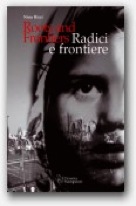 Roots and Frontiers/Radici e frontiere
Roots and Frontiers/Radici e frontiere
edited by Carmen Concilio
translations by Carmen Concilio
foreword by Paolo Bertinetti
Tirrenia Stampatori (Torino, 2003)
A collection of previously published stories, essays, and memoir pieces by Nino Ricci revolving around issues of dislocation and cultural identity. Each piece appears in the original English and in Italian translation.
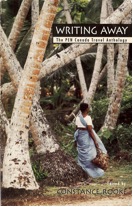 Writing Away
Writing Away
edited by Constance Rooke
McClelland & Stewart (Toronto, 1993)
Includes Nino Ricci’s travel story “Things Fall Apart.” Writing Away was the first of three anthologies published by M & S to support PEN Canada in its work on behalf of imprisoned writers and of freedom of expression. It includes contributions from Margaret Atwood, Leonard Cohen, Alice Munro, Michael Ondaatje, Susan Swan, and many others.
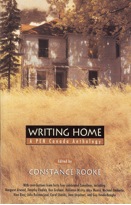 Writing Home
Writing Home
edited by Constance
McClelland & Stewart (Toronto, 1997)
The 2nd PEN Canada anthology, including pieces by Wayson Choy, Marian Botsford Fraser, Greg Hollingshead, Yann Martel, Rohinton Mistry, Paul Quarrington, Jane Urquhart, and Guy Vanderhaeghe. Ricci’s contribution is a meditation on the notion of “home” and a reminiscence on his own childhood home in rural Ontario.
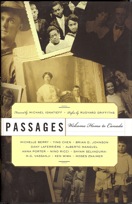 Passages
Passages
foreword by Michael Ignatieff
preface by Rudyard Griffiths
Doubleday Canada (Toronto, 2002)
An anthology of essays and memoirs that explore the experience of moving from one country to another. Ricci’s piece, “Passage to Canada,” looks at his first visit to his parents’ home country as a child.
“I had not quite understood then this dual-sidedness of immigration, how there was always an absent reference point that the present stood against, and that could make the present’s nuts-and-bolts everydayness and permanence suddenly appear the merest shadow.”
~from “Passage to Canada”~
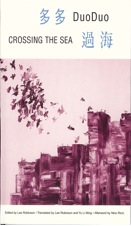 Crossing the Sea by DuoDuo
Crossing the Sea by DuoDuo
edited by Lee Robinson
tranlated by Lee Robinson & Yu Li Ming
afterword by Nino Ricci
House of Anansi Press (Toronto, 1998)
“DuoDuo’s story had a truth-is-stranger-than-fiction drama to it: on the morning of June the 4th. . . he’d been present in Tiananmen Square dodging the bullets of soldiers as colleagues and friends fell wounded or dead around him; in the evening, on his first trip out of China, he’d boarded a plane for England to start a reading tour that had been arranged months before. His departure had been a matter of purest chance. . . . And now here he was less than four months from that time bearing first-hand witness to events that for most of us had been safely distanced as the news.”
~from the afterword, “Beneath the Sleep of Ideology”~
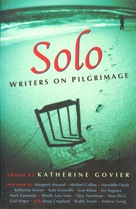 Solo: Writers on Pilgrimage
Solo: Writers on Pilgrimage
edited by Katherine Govier
McClelland & Stewart (Toronto, 2004)
Stories of pilgrimage from an international cast of writers, including Ivan Klíma on his visits to the Terezín concentration camp, and Roddy Doyle on not going to the World Cup. Ricci’s piece, “World’s End,” is about a trip to the Galapagos Islands in search of a character, a story, and the meaning of life.
It seemed no small irony that a place so apparently idyllic should have given rise to a notion, survival of the fittest, that had done such damage to our sense of a moral, well-meaning universe.
~from “World’s End”~
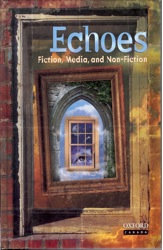 Echoes: Fiction, Media, and Non-Fiction
Echoes: Fiction, Media, and Non-Fiction
edited by Francine Artichuk et. al.
Oxford University Press (Toronto, 2002)
A high-school level textbook on reading and writing that includes Ricci’s story “Going to the Moon,” first published in Saturday Night magazine in 1990.
“Now stray comets and satellites were flashing past our windshield as the moon, balanced in the vastness of space, grew slowly larger and larger, until with a bump and a lurch we touched down and opened our eyes to see its surface unfurled beside us; and when we had removed our safety straps and taken off our shoes and packed ourselves carefully into our spacesuits, we stepped out into space finally, our bodies moving weirdly because of the lack of gravity, and set off like tiny gods across the water-colour strangeness of the moon.
~from “Going to the Moon”~